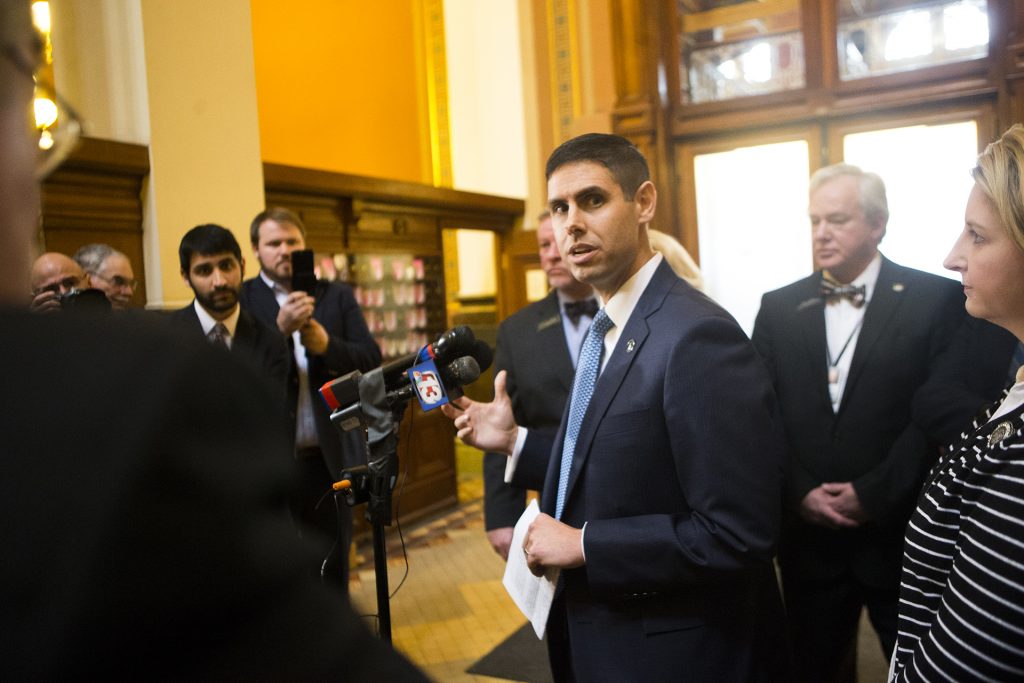A day after allegations of sexual misconduct by Nate Boulton surfaced (May 23), the state senator from Des Moines rightly suspended his campaign for the Democratic gubernatorial nomination. But initially, Boulton seemingly had no intention of dropping out of the race.
“I think I owe it to those people who have supported me to have that vision tested at the ballot box,” he told The Des Moines Register.
Coupled with his official statement emphasizing his behavior “in no way equates to the disgraceful actions taken by men across the country,” as well as his championing of the #MeToo movement on the campaign trail, Boulton’s actions highlight an important reckoning when it comes to abusive men with liberal politics. Many men, like Boulton, have used their advocacy for women as a cover or even reparation for their mistreatment of them. And the worst part is, they seem to believe that advocacy entitles them to continued power.
Prior to the allegations surfacing, Boulton said in a May 13 debate that he became a workers’ rights attorney to stand up for victims of discrimination, assault, and harassment. Before suspending his gubernatorial campaign following public backlash, he told the Register that he would take the role of governor very seriously, because there is “no other threat of this happening” again. And despite the Iowa Democratic Senate leader and other female lawmakers calling on Boulton to leave the Senate, he hasn’t.
Instead, Boulton has framed his harassing behavior as a “lesson to all young men” and said, “It is my hope there is some positive that can come from this moment.”
Now former Sen. Al Franken, D-Minn., was an icon among Democrats before sexual-misconduct allegations against him surfaced. As with Boulton, he responded by mentioning others’ harassment behavior, mainly that of President Trump and failed Alabama Senate candidate Roy Moore. His only stated regret was “having to walk away from this job with so much work left to be done,” suggesting he would still be of value in furthering progressive causes.
But it’s not just abusive politicians with a superiority complex who perpetuate the problem, it’s also those who prioritize abusers’ politics over their personal lack of adherence to them. After allegations against Franken were publicized, self-described feminists penned op-eds on why he shouldn’t resign. On an institutional level, House Minority Leader Nancy Pelosi was reportedly hesitant to address allegations against now-former Rep. John Conyers, D-Mich., for fear of upsetting the Congressional Black Caucus. She said Conyers has “done a great deal to protect women” by supporting such initiatives as the Violence Against Women Act.
Sexual harassment is obviously not just a problem for the Democratic Party. But after years of branding itself with principles of gender equality and women’s rights, the misconduct of individuals — and the institution’s failure to fully condemn it — makes the party’s hypocrisy that much more disappointing.



